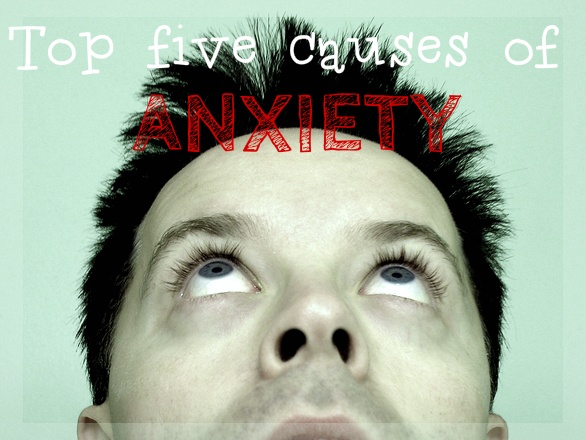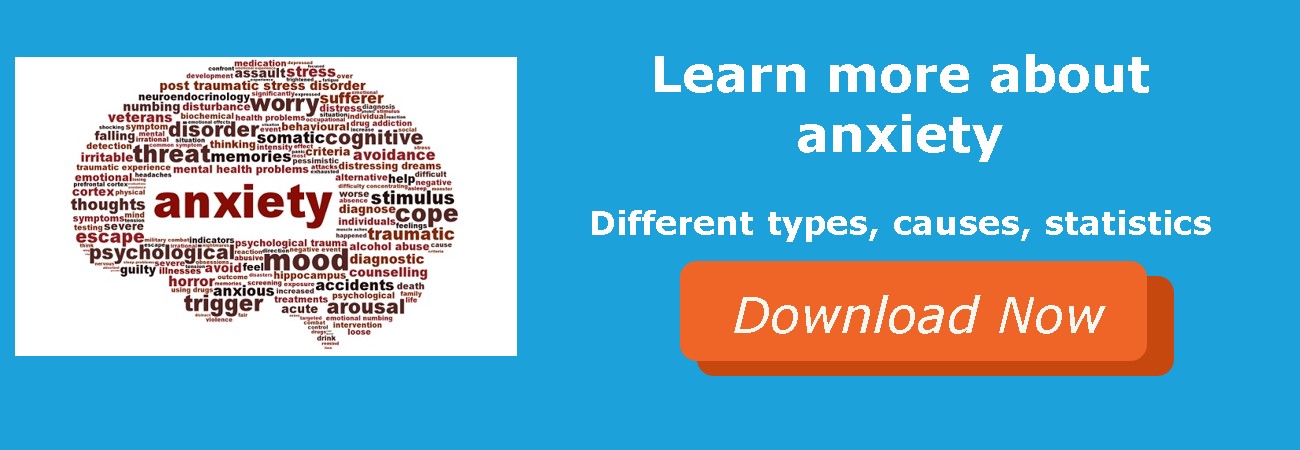The Top Five Causes of Anxiety
Typically there are a number of factors that contribute to the experience of anxiety and rarely is there anyone cause. The experience of anxiety differs from person to person depending on their genetics, life, upbringing and unique personality characteristics. Nevertheless, we have come up with the top five anxiety causes listed here.
The Top Five Causes of Anxiety
1. Genetic Factors
Some people are genetically vulnerable to experiencing anxiety. Whilst there is no specific“anxiety gene”, researchers have found that people who with a family history of anxiety (or other mental health issues) are more likely to have high levels of anxiety. This genetic link may mean that some people are more susceptible to anxiety than others.
2. Stressful Life Events
Stress can be a big contributor to anxiety. Whilst it can be easy to link our experience of anxiety to a negative stressful life event, such as a stressful job, a relationship breakdown or financial difficulties. Sometimes we forget that positive life events, such as getting married, having a babyor going on a big overseas holiday can also be stressful. It is important to check in with our feelings and be compassionate to the struggles that we are experiencing in life. Know what to do to stop overthinking your life.
3. Substance Abuse
Substance abuse is a big contributor to anxiety. This includes both illicit substances and the misuse of prescription substances. Often people feel that the substance use is helping them cope with their anxiety. However, ongoing substance use acts to maintain anxiety overtime and typically increases anxiety (particularly when the effects of the substance are wearing off).
4. Physical Health Issues
Ongoing heath complaints can act to trigger and maintain symptoms of anxiety over time. Health complaints such as asthma, diabetes, heart disease and thyroid problem are often linked to the experience of anxiety. In addition to this, some medications use to treat physical health complaints can also contribute to the experience of anxiety.
5. Personality Factors
Some people with particular personality characteristics are more likely to experience anxiety than other people. There is a wide range of personality factors that are linked to anxiety. Some of these traits include people with low self-esteem, who are easily flustered, that seek to control things and who are perfectionists.
If you are struggling to better understand why you are feeling this way, then it is probably a good idea to speak further with a mental health professional about your personal experience of anxiety. A mental health professional such as a psychologist can provide an individualised assessment and help you understand what is going on for you.
For a summary of the causes of anxiety, along with further information on anxiety statistics and the different types of anxiety disorders, you can download a free infographic here.
THREE CONVENIENT LOCATIONS
MOUNT GRAVATT
Mt Gravatt Medical PrecinctSE 105, 1808 Logan Rd
Upper Mount Gravatt QLD 4122



